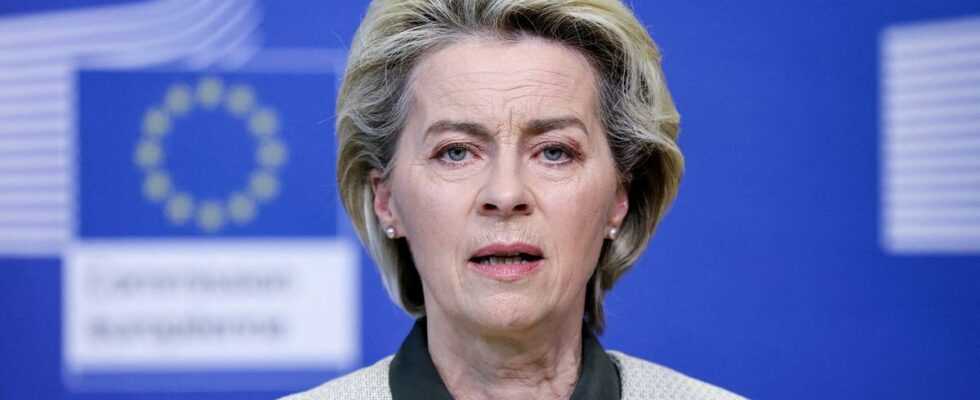European Commission President Ursula von der Leyen will visitthis weekin kyiv accompanied by the head of EU diplomacy Josep Borrell, his spokesman announced on Tuesday April 5.
LIVE – War in Ukraine: France expels 35 Russian diplomats
“President @vonderleyen and High Representative @JosepBorrellF will travel to Kyiv this week to meet President @ZelenskyyUa ahead of the #StandUpForUkraine event in Warsaw on Saturday“said spokesperson Eric Mamer on his Twitter account. This event is intended to raise funds for Ukrainian refugees. “I expect its arrival in the next few days, we don’t know when yet“, specified Tuesday the Ukrainian president during a meeting with the press. “The day before yesterday, we agreed with the European Union that there will be an international commission of inquiryon the war crimes of which the Russian forces are accused in Ukraine. “The EU is ready to send teams of investigators to the field“, announced Monday Ursula von der Leyen.
Visit of Roberta Metsola
Volodymyr Zelensky will speak to the UN Security Council on Tuesday. He accused Russian forces of killing scores of civilians in eastern Ukraine, including Boutcha, but the Kremlin denied responsibility. Ursula von der Leyen’s trip follows the visit to kyiv by the President of the European Parliament, Roberta Metsola, by a few days. It was announced Monday evening by Slovenian Prime Minister Janez Jansa, but the European Commission then refused to confirm it. Janez Jansa took part on March 15 with his Polish counterparts Mateusz Morawiecki and Czech Petr Fialac in the first visit by EU leaders to the besieged Ukrainian capital since the start of the Russian invasion on February 24. Austrian Chancellor Karl Nehammer also plans to visit Kyiv “in the next few daysto meet the president there, according to a statement. It is “quickly provide additional humanitarian assistance“.
Read alsoUkraine scores victory in kyiv ahead of Battle of Donbass
Member states are discussing a new package of economic sanctions to try to block the Russian war machine, but they are divided on the measures affecting the purchases of oil, gas and coal. Russia is the EU’s largest supplier of fossil fuels. It alone accounts for around 45% of gas and coal imports, and 25% of those of oil.
